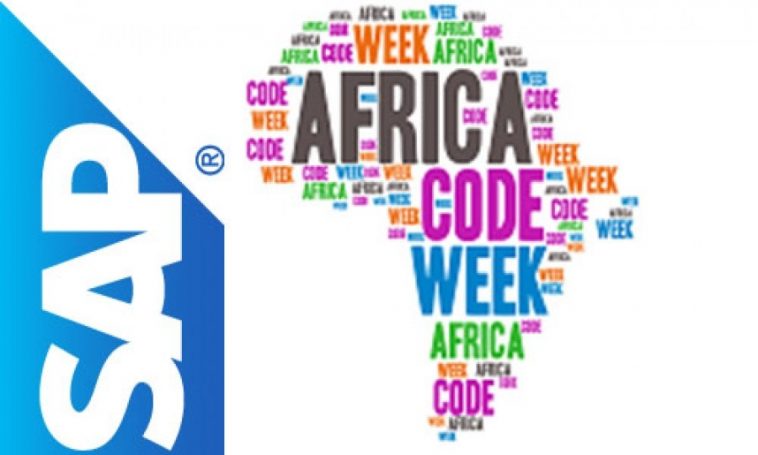The 2018 Africa Code Week (ACW) kicked-off on 12th June. The event began with its first-part series of Train-the-Trainer (TTT) workshops in Madagascar. Over 200 local parents and teachers stood a chance of undergoing training on the open-source Scratch learning program. The program will help them to have and sustain the development of digital skills in their respective classes. It is now four year in a row that ACW is instilling the 21st-century skills among the youths in Africa. It mainly focuses on capacity-building and development of female skills and training. All this are meant primarily for support #eskills4girls initiative.
Launched in 2015, courtesy of SAP CSR EMEA, AWC is now under the support of the German Federal Ministry for Economic Cooperation and Development (BMZ), Google, UNESCO YouthMobile, 15 governments from Africa, more than 100 ambassadors and 150 partners across Africa. All are coming together to narrow the gender and digital skills gap in Africa. This helps to empower the youths with the much-needed skills to help them become essential players in the digital economy. Until now, the initiative has introduced digital skills to over 1.8 million children from 35 countries in Africa. Moreover, it aims to empower 70,000 teachers and impact the lives of 2 million youths come 2020.
The SAP targets to get to 600,000 youths within 35 African countries during October 2018. The actual dates are to be set by every country to go well with their school calendar. Project Lead for Africa Code Week and SAP’s Director of EMEA Corporate Social Responsibility Karolina Telejo said that 2018 is going to be an exciting year. This is because ACW is shifting from igniting Africa and bringing the importance of digital education awareness to sustaining the program impact. It does this through capacity-building efforts in collaboration with NGOs, schools, and governments. The initiative has managed to train more than 25,000 teachers in the last three years. It has also managed an average ratio of 72 African youths engaged per trained teacher. TTT programs play an essential part in the ACW’s sustainable impact within Africa. They equip teachers with learning materials and skills. The materials facilitate the integration of digital skills into the school curriculum.
This year’s edition will see more than 20 TTT workshops hosted by NGOs, Ministries or ACW teams within the continent. According to Telejiko, the initiative goes beyond increasing the number of teacher’s training. It also involves providing teachers with a comprehensive curriculum that impacts the 21st-century knowledge. Madagascar is the fourth largest Island in the world has a population of above 26 million with more than 50% of its population being the youths. Its economy largely depends on the export of agricultural products that employs around 80% of its population. The country is working on ways to expand its ICT infrastructure through various measures like putting up ICT centers in schools. This is in a move to do away with poverty.
Director General of Secondary Education and Mass Training Lalaharontsoa Rakotojaona thanked ACW, UNESCO and SAP partners for their vision to develop community and teacher capacity for development of ICT skills. He said that the initiative was in line with the Ministry of Education’s vision. SAP Africa’s MD Cathy Smith said that partnership between public and private sectors foster transformative changes to the African youths. She added that the mission of SAP is to make the world a better place by improving people’s lives. According to her, the continent is the youngest talented globally, and the partnership between SAP and ACW bring a substantial collaboration and impact.



